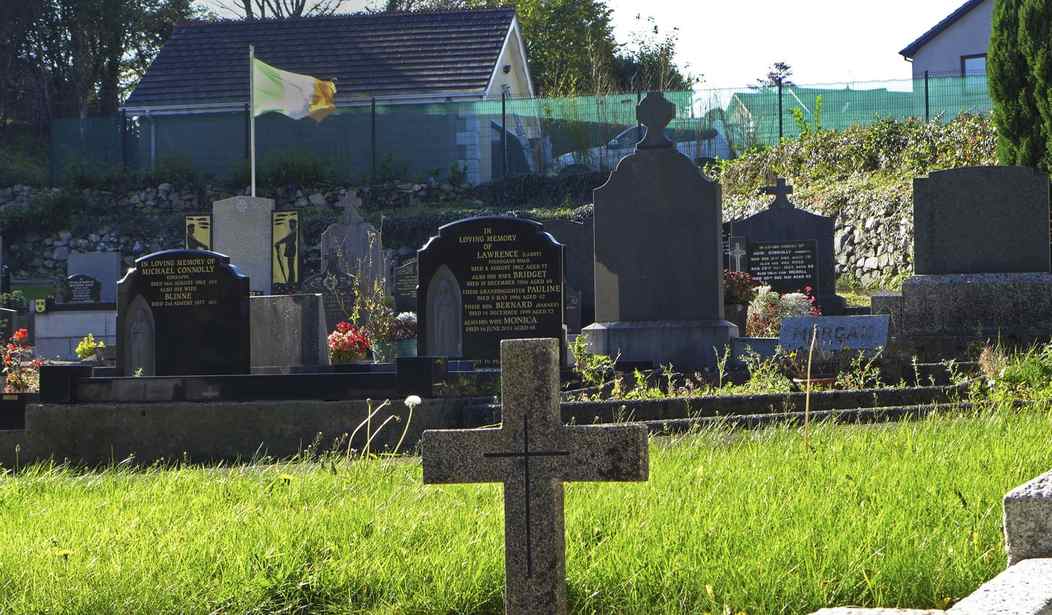When I wrote "A Death on His Own Terms" last month, I did so knowing that it was going to be controversial, particularly among conservatives. The story dealt with political strategist Hal Malchow, who traveled to Switzerland to submit himself to voluntary euthanasia after he began losing his cognitive abilities to Alzheimer's disease. (As an update, Malchow died on schedule.) This is a touchy subject as I'm well aware. When we discuss it around here, most of us are at least able to understand a person seeking to put an end to horrible suffering from an incurable condition as death inevitably approaches, even if some still don't approve.
I went one step further, endorsing Malchow's right to make that choice for himself with the support of his family. This appeared to create some confusion among readers, some of whom seemed to think that I had gone whole hog into the MAID camp the way it is practiced in Canada, but that's really not the case. There are still some examples that seem to be very much a bridge too far, even for me. One of those stories is featured in The Free Press this week and it deals with 28-year-old Zoraya ter Beek of the Netherlands. She plans to be euthanized early next month, but she is neither terminally ill, in physical pain, or battling cognitive loss. She's suffering from depression, reportedly mild autism, and what is vaguely described as a "borderline personality disorder." And she has a lot going for her.
Zoraya ter Beek, 28, expects to be euthanized in early May...
Ter Beek, who lives in a little Dutch town near the German border, once had ambitions to become a psychiatrist, but she was never able to muster the will to finish school or start a career. She said she was hobbled by her depression and autism and borderline personality disorder. Now she was tired of living—despite, she said, being in love with her boyfriend, a 40-year-old IT programmer, and living in a nice house with their two cats.
She recalled her psychiatrist telling her that they had tried everything, that “there’s nothing more we can do for you. It’s never gonna get any better.”
Euthanasia is legal in the Netherlands and the requirements to "qualify" for the procedure are nearly as loose and ambiguous as they are in Canada. Because of that, it would appear that there is little standing in her way unless she experiences a change of heart. But if I could find some way to reach through my computer screen and take her by the hand, I would ask her how she arrived at this dark place and if all hope is truly lost.
I'm not one to make light of other people's mental and emotional health disorders. Depression is a real experience for many and I'm sure being on the autistic spectrum brings its own challenges. I don't really have any experience with personality disorders, but that must be a sore spot as well. But Ms. Ter Beek is barely into her adult life at 28. She has friends and a nice home. She has a long-term boyfriend who apparently cares about her. Shouldn't that be enough to keep someone going?
I left that last, brief paragraph in the excerpt above for a reason. I found myself wondering if this young woman has simply been receiving very substandard and potentially dangerously bad mental health care services. She says that she's been treated by a psychiatrist but she was told that all options had been exhausted, there was nothing more they could do for her, and that things are "never gonna get any better." Assuming she is reporting this correctly, what sort of a doctor would ever say something like that to a patient who was already exhibiting symptoms of depression and suicidal ideations?
In the linked article, a healthcare ethicist is quoted as saying that mental healthcare providers in the Netherlands are now ready to "give up on them more easily than before.” That was a specific reference to younger patients dealing with depression. The same thing seems to be happening in Canada. That's not just substandard mental healthcare. It's pretty much the opposite of healthcare. Optional death should be the course of last resort, particularly if there are other avenues left to attempt. It certainly sounds as if someone is giving up on Ms. Ter Beek far too soon. In turn, they are allowing her to give up on herself.
Zoraya Ter Beek admits during the interview that she is "a little afraid of dying because it’s the ultimate unknown." That's putting it mildly. Where is Ter Beek's boyfriend in all of this? Has he made the effort to change her mind and show her that she still has reasons to live? Or is this young woman surrounded by people - including those in the medical profession - who are willing to simply wave goodbye and wish her better luck in her next incarnation? This is all very disturbing, and I find myself having considerably more sympathy for those who criticized me for supporting Hal Malchow's decision to end his life. Particularly in places like Canada, the situation can obviously spiral out of control.








Join the conversation as a VIP Member